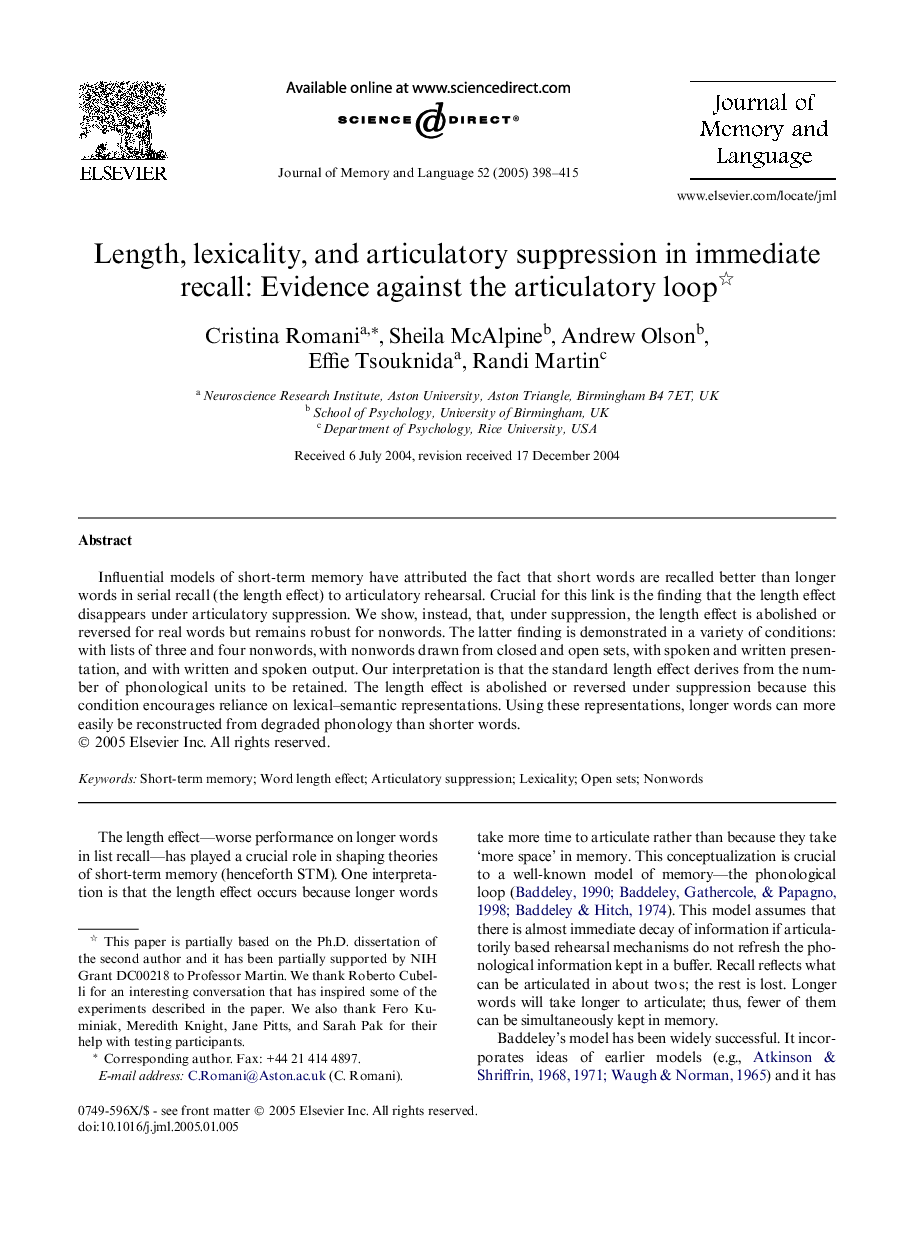| Article ID | Journal | Published Year | Pages | File Type |
|---|---|---|---|---|
| 10459885 | Journal of Memory and Language | 2005 | 18 Pages |
Abstract
Influential models of short-term memory have attributed the fact that short words are recalled better than longer words in serial recall (the length effect) to articulatory rehearsal. Crucial for this link is the finding that the length effect disappears under articulatory suppression. We show, instead, that, under suppression, the length effect is abolished or reversed for real words but remains robust for nonwords. The latter finding is demonstrated in a variety of conditions: with lists of three and four nonwords, with nonwords drawn from closed and open sets, with spoken and written presentation, and with written and spoken output. Our interpretation is that the standard length effect derives from the number of phonological units to be retained. The length effect is abolished or reversed under suppression because this condition encourages reliance on lexical-semantic representations. Using these representations, longer words can more easily be reconstructed from degraded phonology than shorter words.
Related Topics
Life Sciences
Neuroscience
Cognitive Neuroscience
Authors
Cristina Romani, Sheila McAlpine, Andrew Olson, Effie Tsouknida, Randi Martin,
